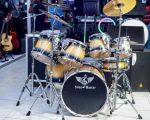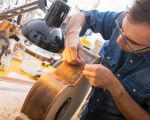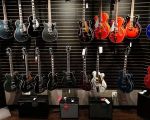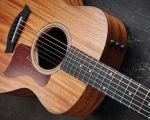Best Harmonicas for Blues Musicians: A Complete Guide
As a blues enthusiast and harmonica player, I've spent countless hours experimenting with different harmonicas to capture the soulful sound that defines blues music. Whether you're a seasoned musician or just starting your harmonica journey, choosing the right harmonica can be a game-changer. For blues musicians, a harmonica isn't just an instrument—it's a voice, an extension of the emotions and stories that blues music tells. Over the years, I've discovered that not all harmonicas are created equal, especially when it comes to the distinctive sound of blues. In this article, I’ll guide you through some of the best harmonicas for blues musicians, detailing their features, advantages, and why they’re the top choices for creating authentic blues tones.
1. Why the Right Harmonica Matters for Blues Music
As I learned early on, playing the harmonica for blues isn’t just about hitting the right notes—it’s about creating a feeling. The beauty of blues lies in its raw emotion, and a good harmonica helps convey that intensity. There’s a world of difference between a harmonica that is designed for folk or pop music and one crafted specifically for blues. For example, the tone, responsiveness, and ability to bend notes are all crucial for achieving the signature blues sound that’s both smooth and expressive.
When you choose a harmonica for blues, you need an instrument that’s sensitive to subtle nuances and capable of producing the "wailing" sound that is so characteristic of the genre. A harmonica that responds well to hand techniques like cupping and blocking, or techniques like bending and overblowing, is essential for an authentic blues performance. I quickly realized that certain brands and models are specifically designed to give you this power, making them ideal for blues musicians who want to harness the soul of the music.
2. The Hohner Marine Band 1896: A Legendary Choice for Blues
If there’s one harmonica that is synonymous with blues, it’s the Hohner Marine Band 1896. This harmonica is a classic in the blues world and has been a go-to choice for many iconic blues artists, including John Lee Hooker and Little Walter. What makes the Marine Band 1896 such a favorite for blues musicians is its rich, full-bodied sound and excellent response, which allows players to really dig into the bends and tones that are so vital for blues music.
The Marine Band 1896 is known for its traditional wooden comb, which gives it a warm, vintage tone. The reeds are well-crafted, ensuring the harmonica can handle both soft and loud playing. For those of us who like to push the harmonica to its limits, this model is perfect for producing deep bends and smooth glissandos. While the wooden comb requires a bit of maintenance, it’s well worth it for the sound quality it delivers. It’s a harmonica that feels alive in your hands, capable of expressing everything from sorrow to joy in a single note.
3. The Lee Oskar Major Diatonic: Versatile and Durable
Another harmonica that I highly recommend for blues players is the Lee Oskar Major Diatonic. Lee Oskar has been a key name in the harmonica world, and his harmonicas are beloved for their quality and durability. The Major Diatonic is designed specifically for diatonic playing, making it an excellent choice for blues musicians who want a harmonica that’s both versatile and easy to play.
The thing I love about the Lee Oskar Major Diatonic is its bright, clear tone. It’s a harmonica that can really cut through the mix, which is perfect for standing out in a blues jam. The plastic comb makes this harmonica more resistant to moisture and warping compared to traditional wooden combs. This feature is particularly helpful for blues musicians who are on the road or playing in high-humidity environments. The reed plates are made from stainless steel, adding to the durability and responsiveness of the instrument.
One of the standout features of the Lee Oskar Major Diatonic is its ease of maintenance. The reed plates are removable, making it easy to clean and repair the harmonica if needed. This is particularly useful for musicians who play frequently and need an instrument that can withstand the wear and tear of regular use. Whether you're just starting out or you're an experienced blues player, the Lee Oskar Major Diatonic is a solid and dependable choice.
4. The Suzuki Promaster: Precision and Quality
If you’re looking for a harmonica with precision and a premium feel, the Suzuki Promaster should be on your radar. I first encountered this harmonica while attending a blues workshop, and I was immediately impressed by its tone and build quality. The Suzuki Promaster features an aluminum comb that gives it a unique, resonant sound. It’s not too bright, but it’s rich and full, which makes it an excellent choice for blues musicians who want clarity and precision.
One of the key advantages of the Suzuki Promaster is its tight, responsive reed plates, which make it easy to play fast, intricate licks or soulful bends. The harmonica feels smooth under your fingers, making it perfect for those extended solo sessions or spontaneous jamming. The Promaster’s reeds are well-tuned, and it has a crisp, clean attack, which is vital for blues musicians who want to express themselves with clarity and power.
Another standout feature of the Suzuki Promaster is its durability. Unlike some other harmonicas, the Promaster is known for staying in tune longer, making it a great choice for musicians who perform frequently. It’s a harmonica that can handle all of the dynamic and tonal variations required for blues, and it’s built to last, which makes it a worthwhile investment.
5. The Hohner Special 20: A Great Option for Beginners and Pros Alike
The Hohner Special 20 is one of those harmonicas that I recommend to almost every blues player I meet, whether they’re a beginner or a seasoned pro. I’ve personally used the Special 20 for years, and I’ve always found it to be a reliable and versatile instrument. It’s known for its smooth, mellow tone, which is perfect for the laid-back sound of many blues genres.
One of the reasons I love the Special 20 is its ability to handle both subtle nuances and full-on blues wailing. The harmonica has a plastic comb, which gives it a slightly brighter sound than wood but still maintains a warm, resonant quality. The reed plates are designed for easy playing, and the harmonica responds well to bending and overblowing—two techniques that are essential for blues music. It’s a harmonica that feels responsive and comfortable, making it perfect for both beginners and experienced players who want to practice and perform with confidence.
Whether you're looking for a harmonica to practice on or one to take to the stage, the Hohner Special 20 delivers consistent performance. It’s also available in multiple keys, allowing you to experiment with different sounds and tonalities depending on your musical preferences.
6. Conclusion: Choosing the Best Blues Harmonica for Your Sound
Choosing the right harmonica for blues music is all about finding an instrument that suits your playing style and sound preferences. Whether you go with the iconic Hohner Marine Band, the versatile Lee Oskar Major Diatonic, or the precision-crafted Suzuki Promaster, there’s a harmonica out there that can help you unlock your full blues potential. My journey through different harmonicas has taught me that every player has unique needs, and the perfect harmonica can make all the difference in capturing that soulful blues sound.
Ultimately, the best harmonica for blues musicians is one that offers a great balance of playability, tone, and durability. With the right harmonica in your hands, you can unleash the power of the blues and let your music tell your story. So, whether you're just getting started or you're a seasoned player looking to upgrade, consider these options and find the harmonica that speaks to you.








